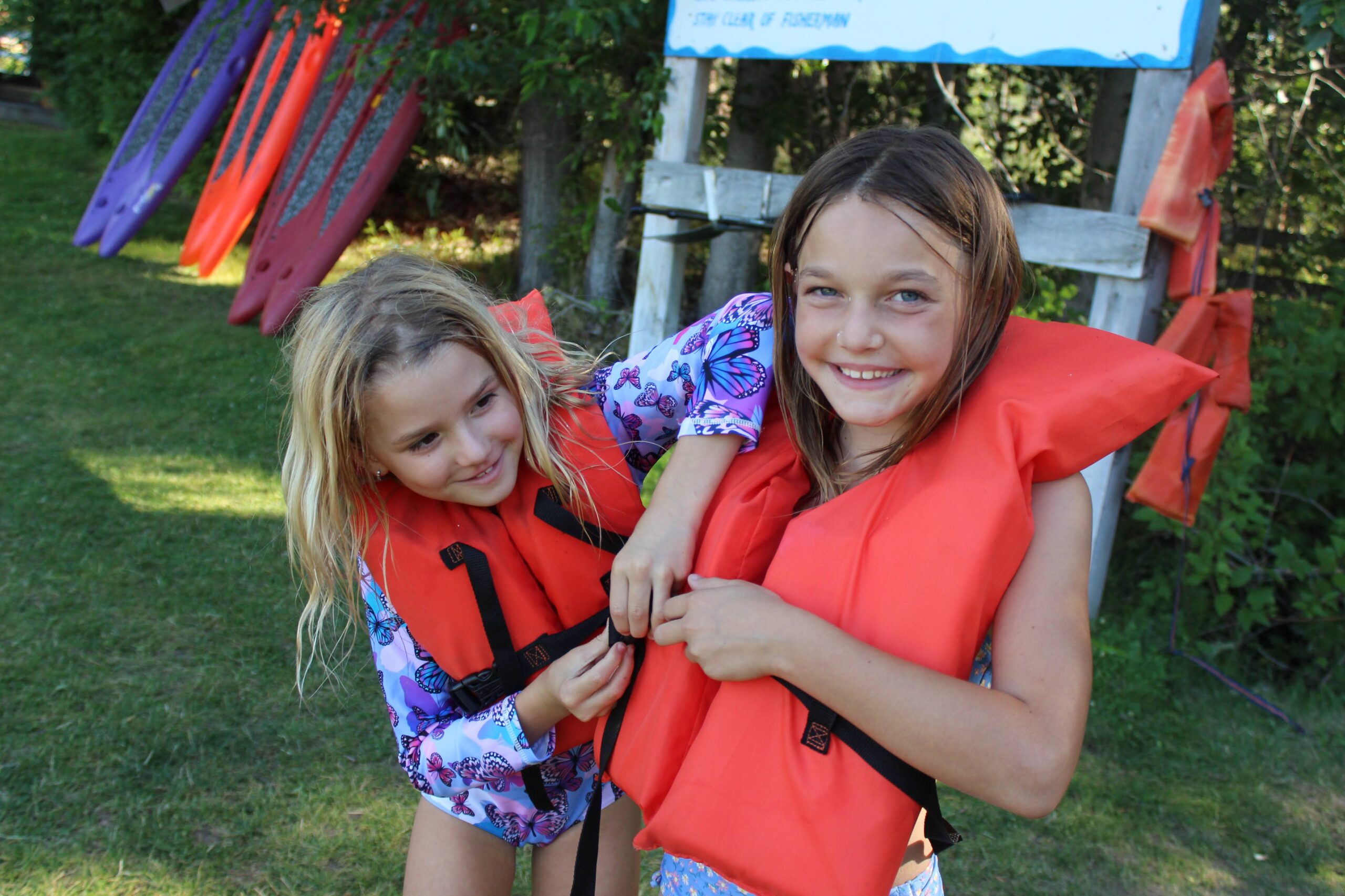Determining Readiness for Camp
The first step in determining camp readiness is to establish that while camp is for every child, not every child is ready for camp; not every child is in a place to get the most out of what the camp experience has to offer.
The second step is to establish common ground with the prospective camps you are evaluating. Camp professionals take incredible care to be sure that a child’s experience at their camp is going to be a happy, healthy and successful one. As the parent and/or adult at home, it is important to partner with your prospective camp in taking this same care with honest and as little bias as possible in assessing your camper’s readiness for camp.
Why is it important to take care in determining whether your child is ready for camp?
It is easy to fool ourselves into thinking that a child is ready when they are not, but it is the child (and often the other children around them) who pay the price for this. A child who comes to camp who is not socially or emotionally ready risks not only being turned off to camp in the future, but they also may suffer from the humiliation of being “a failure” because they “couldn’t make it” at camp. The other children around them could be negatively impacted by the surface behaviors that can manifest in response to this “failure”: bullying, aggression, negativity, moodiness, etc. If a child is not ready for the camp experience, they may end up miserable, feeling worse off for it, and negatively impacting the other children at camp.
What does a successful camp experience look like?
Bob Ditter defines a successful camp experience in part as 1) being able to make and keep friends; 2) meet the responsibilities of living in a cabin, bunk or tent; 3) respect the authority of caring-taking adults; 4) freely take advantage of camp activities and 5) work out the normal and expected conflicts that come when a bunch of “brothers” or “sisters” share common space.
Identifying Signs
It is the joint responsibility of the camp director and the parent to make a determination of readiness. Partnering together begins by looking together at what signs might help decide whether a child who has never been to camp before is ready.
Bob Ditter’s “Ready, Set, Go!” checklist for camp readiness:
Self-Care Habits
- Your child is able to choose and put on his/her own clothes.
- Your child is able to brush their teeth without a lot of prompting.
- Your child washes up or gets clean without a lot of prompting.
- Your child has taken a shower on their own.
- Your child generally sleeps through the night.
- Your child does not usually have severe nightmares.
- Your child rarely wets him or herself at night or during the day.
- Your child agreeably wears clothing that fits the weather.
- Your child can ask for help around self-care issues (dressing, eating, bathroom care, showering, etc.)
Family Relationships
- Is your child able to ask for help from you or another significant adult in his or her life when he or she has a problem at home or in school?
- Does your child usually obey your requests and follow rules in your household?
- Does your child have a positive, nurturing relationship with at least one grandparent?
- Has your child successfully slept over at a relatives’ house?
Friendships/Social Relationships
- Does your child have a best friend?
- Does your child make and get phone calls from kids his/her age?
- Does your child get invited to play dates?
- Does your child get invited to birthday parties/Bar and Bat Mitzvahs?
- Has your child successfully slept over at a friend’s house?
- Has your child had any friends sleep over at your house?
- Do other children want to come to your child’s birthday parties?
- Does your child play primarily with children the same age as him/herself?
- Does your child share control of the play when he/she is with other children (the choices of games/the conversation/rules)?
School/Activities
- Does your child go to school with reasonable ease?
- Does your child do reasonably well academically?
- Does your child have friends in school?
- Does your child follow school rules/comply with discipline?
- Overall, is your child happy at school?
- If your child is on an Individualized Education Plan (IEP), does he or she participate reasonably well with its provisions?
Overall Psychological Health
- Does your child recover from setbacks reasonably well?
- Is your child able to express his or her feelings or concerns in words reasonably well?
- When your child is upset does he or she eventually ask for and accept help?
- Does your child eventually accept discipline reasonably well?
- If your child has a problem has he or she been able to collaborate on problem-solving with a trusted adult in his or her life? Overall, is your child reasonably happy?
The key to the checklist is to look for a pattern of behaviors or a trend of responses that might indicate that a child is either too emotionally immature or not socially well developed enough to handle the rigors of life in a cabin, tent, or bunkhouse. Rather than try to make a determination based on one item or the checklist as a whole, the answers provide an opening for a more in-depth conversation with your child (and a camp professional) about the realities of camp and whether the child will be reasonably able to meet the demands of that reality.
Careful questioning and an open discussion can help you make the decision as to whether your child is ready for the rich, growth-enhancing, and diverse experience of camp.
Tips & Checklist adapted from Bob Ditter, M.Ed., LCSW Boston, Massachusetts www.bobditter.com


